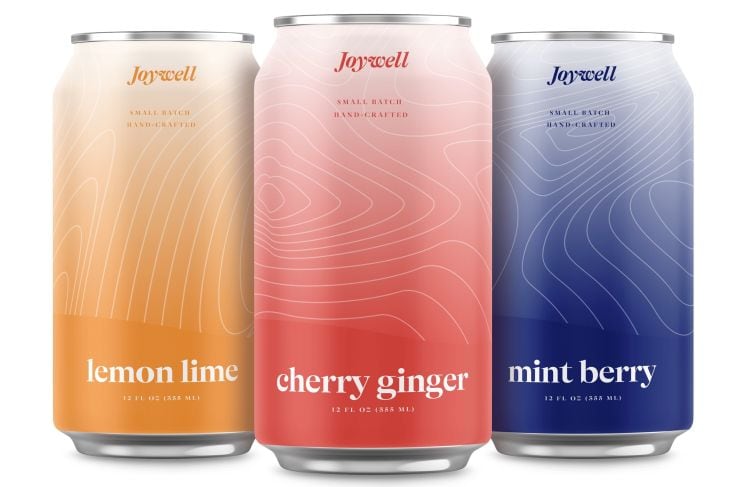Marketed under the brand name ‘sweelin,’ the ultra-sweet, zero-calorie protein is inspired by monellin, a protein found in serendipity berries, but is slightly different in structure (making it more stable), said founder and CEO Dr Ilan Samish, who deploys agile-integrative computational protein design (AI-CPD) with precision fermentation to program a yeast strain to express the protein.
“We have infused thus far $17.5m into Amai, which includes dilutive and non-dilutive funding. We are finalizing the closing documents of the initial closing of a $100m round."
Asked about its regulatory status, he told FoodNavigator-USA: "We already have numerous agreements with multinationals and we anticipate being self-GRAS in Q2, 2023.”
The plan is then to submit that determination to the FDA with the expectation of receiving a 'no questions' letter in 2024, he added.
‘Having a sweetener that is 100% protein is very well received’
While no high intensity sweetener is a perfect replacement for sugar, which provides a dizzying combination of attributes from sweetness and bulk/mouthfeel to browning, sweelin has a very clean taste profile and works well in combination with multiple sweeteners, including sugar, according to Amai Proteins.
Notably, claimed Dr Samish, as "sweelin is 100% protein, and as we proved digestibility, unlike other sweeteners, it is not expected to adversely interact with the microbiome" or trigger a glycemic response, important factors given recent scrutiny of high intensity sweeteners in the wake of a draft guideline from the WHO sounding a cautionary note about the long-term effects of zero-calorie sweeteners such as sucralose and saccharin and a paper from the Weizmann Institute alleging that some diet sweeteners can alter the microbiome in a way that may impact glycemic tolerance.
“Sweeteners, especially high intensity sweeteners, have a bad reputation,” he claimed.
“Whether the science says aspartame is good or bad doesn't matter. The bottom line is that is the perception. We have done extensive consumer studies in the US and other markets and having a sweetener that is 100% protein is very well received.”
Labeling: ‘We don’t have any generic name for the protein because we invented it’
But if sweelin is a novel sweetener, how would it be labeled?
“We don’t have any generic name for the protein because we invented it,” said Dr Samish. “It’s inspired by monellin, but it is not identical to any protein that is found in the wild. However, it is 100% sweet protein as it’s made solely by amino acids, so we expect it would be labeled as 100% sweet protein, but we are working with labeling lawyers to make sure we comply with all the guidelines and rules. We are in the process of listing sweelin by a common name, such as a CAS number."
As for the GMO factor, he said: "While we use a genetically modified microorganism [to produce sweelin], the sweelin product has no residual DNA. Consequently, the regulatory authorities don't consider it to be a GMO and it does not need to undergo the regulatory track for GMO."
As the final product does not contain any detectible modified DNA from the host micro-organism, meanwhile, it would not trigger bioengineered labeling in the US, he added.
“While we use a genetically modified microorganism [to produce sweelin], the sweelin protein is secreted to the medium and has no residual DNA detected. Consequently, we are exempt from bioengineered (BE) labelling in the US."
‘Up to a certain amount, sweelin has a sweetness profile which is identical to sugar’
So what is sweelin like to work with, and would it be used as a standalone sweetener, or in combination with other sweeteners?
Sugar, said Dr Samish, is unique in that it inspires a linear dose response, such that for each additional unit of sugar you add to a formulation, you get a predictable increase in sweetness. Other sweeteners, including sweelin, don’t behave in this way. Instead, they work in a “hyperbolic fashion,” he explained.
This means that at some point,” for every unit of sweetness [you want to achieve], you need many more units of sweetener,” which means that at some point, you’ll likely run into sensory issues.
“Up to a certain amount, sweelin has a sweetness profile which is identical to sugar,” he said. “Above that amount, we begin to get a mild lingering. It’s not an off-taste, but it’s a mild lingering sweetness.
“So for each application, we identify the sweet spot where we can get a maximum sugar reduction without compromising taste, which could be 40-50% in some cases and 70% in others such as ketchup. If you want additional reductions, we can combine sweelin with other sweeteners, but in many cases it is combined with a small amount of sugar, as we think the sugar reduction market is a lot bigger than the diet market.”
That said, he added, "We have collaborations with some very big companies doing zero calorie and reduced-sugar beverages.”
Non-linear dose response
Given the non-linear dose response issue, it often makes sense to use sweelin in combination with other high-intensity sweeteners at very low levels (such that any off notes associated with, say, stevia, would not be detectible) rather than as a standalone sweetener, he said.
“If you use each sweetener in a small amount that is below the level where you’ll get off tastes or linger can occur, you get the best taste profile.
“We have a slightly slower onset than sugar, but compared to other sweeteners that are not sugar, we have an amazing sensory profile.”
‘This ketchup [featuring sweelin] has 70% less added sugar and even our super-tasters cannot distinguish between this and a full sugar product’
Compared to some other sweet proteins such as brazzein that firms such as Joywell and Conagen are producing via microbial fermentation, he said, sweelin has a broader scope.
It is similar to the 'hyper-sweet' protein monellin, but stable, he said: "At 45 degrees Celsius, monellin loses functionality and denatures, just like boiling an egg. It loses its 3D structure and thus the sweet function. It also exhibits a compromised sweetness profile and is extremely expensive."
By contrast, sweelin draws inspiration from extremophiles: proteins from organisms that reside in harsh environments such as the Dead Sea (halophiles) and hot springs (thermophiles) and mimics "their amazing functionality and amazing stability," he said.
“Our protein has a very clean taste, much higher stability, and it's a cheaper product. We have tested a one-year-shelf life with no problems, any pH, we can go to 110 degrees for 10 minutes, no problem. With brazzein, you can’t do that. Sweelin is the sweetest and most stable sweet protein in the world.”
As a high intensity sweetener, ‘sweelin’ is not providing bulk, but he noted, “in two thirds of the market for sweeteners, all you need is sweetness [in many beverages, for example]. On average we know how to reduce 50% of sugar, and in some applications such as ketchup you can reduce added sugar by up to 70%.
“This ketchup [featuring sweelin] has 70% less added sugar and even our super-tasters cannot distinguish between this and a full sugar product.”
Manufacturing and scale up
Asked about manufacturing and scale up, which is a huge challenge in the precision fermentation industry right now given capacity bottlenecks, he said: “We have CMOs in Southeast Asia, in Europe, in the US, in South America and for the next three years, we have all the capacity that is needed.
“But with the new funding, we hope to do a collaboration with one of the CMOs to establish a larger capacity. It’s not our main focus to build our own facility.”
Go to market strategy
As for the go-to-market strategy, he said, Amai is garnering interest from companies in multiple regions, he said.
“With companies including Mars Wrigley, Danone, Ocean Spray and PepsiCo, we have joint development agreements or material transfer agreements, where we either get the recipe or the product without the sugar, and we re-build the sweetening formulation and then we do the tech transfer, so they can do it including at pilots and large scale capacity.”
The pipeline
Right now, the focus is on sweet proteins and combinations of sweet proteins, he said, but Amai is also “working with companies that have nothing to do with sweetness… in meat, milk, and plant-based applications, but in each case we take a protein which is found in the wild, and we design a novel protein that will work in the mass food market.”
Sweet proteins via microbial fermentation

Several companies are now deploying synthetic biology to ‘program’ microbes to express sweet proteins, from Roquette and Brain Biotech AG, who aim to take brazzein (an ultra-sweet protein found in oubli berries that they are producing via microbial fermentation) to market in coming years, to Joywell Foods and Conagen.
Joywell Foods plans to launch CPG products containing sweet proteins, while Conagen says it can now produce brazzein and thaumatin I and thaumatin II efficiently at commercial scale via microbial fermentation. Both claim regulatory work determining the sweet proteins' GRAS status is advanced.



